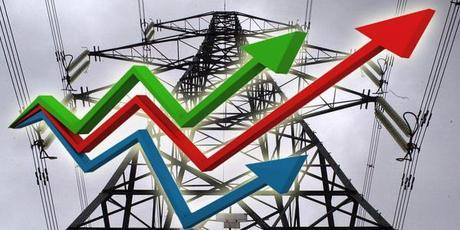
Energy prices will rise above the rate of inflation for the next 17 years a government spending watchdog has warned.
At a time when above inflation price hikes are daily news, the prediction from the National Audit Office (NAO) is a concern to us all, but particularly low income families who are already struggling.
Even higher
The NAO says the rises will be needed to pay for renewal of the UK’s infrastructure which means there is likely to be an average 18% increase in real terms in household energy bills between now and 2030. Water bills will rise even higher – by an estimated 28%.
EDF Energy is the latest provider to announce a price rise for this winter, but at 3.9% the figure is much lower than its competitors. SSE’s price rise is 8.2% while British Gas has announced a 9.2% rise. Npower’s dual fuel bills will rise by 10.4% and Scottish Power’s charges are set to rise by 8.6%
Announcement
The lower EDF figure is said to be ‘in anticipation’ of lower government green levies. The announcement was immediately followed by claims from their competitors that they would cut their prices too if the levies are reduced as has been promised by David Cameron.
Energy minister Ed Davey has warned the energy providers not to treat their customers as ‘cash cows to be squeezed.’
Vulnerable
He acknowledged that the companies need to make profits to invest in greener technologies, but he added: “Those profits cannot come at the expense of the elderly, vulnerable and poorest in our society.
“Trust is breaking down between those who supply energy and those of us who use it. Fair or not, people look at the big suppliers and see a reflection of the greed that consumed the banks.”
Affordability
In their report the NAO said: “Affordability can only be assessed taking into account all household bills, household incomes and the wider cost of living. Gaps in analysis and other factors means the government does not have an overall picture of affordability.”
The watchdog is particularly concerned of the effect the price rises will have on lower income households where energy and water bills account for 15% of spending – almost double the overall average of 8% – while their incomes continue to fall in real terms.
A government spokesman said: “Decades of under-investment have left the UK struggling with insufficient energy infrastructure, but we are committed to fixing the failures of previous governments and helping the most vulnerable with their bills.”
Share this article:


